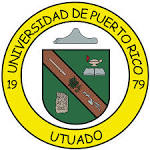What do they do?
Control or operate entire chemical processes or system of machines.
Also known as:
Chemical Operator, Loader Technician, Process Control Operator, Process Development Associate, Process Operator, Process Technician, Production Operator, Production Technician
-
-4.9%
Change
Ranks #38 in job growth rate100Job Openings
Ranks #7 in net job growth
-
Brazosport College
Lake Jackson, TX
-
Lamar Institute of Technology
Beaumont, TX
-
Alvin Community College
Alvin, TX
-
Del Mar College
Corpus Christi, TX
-
Eastern Florida State College
Melbourne, FL
Looking for colleges that offer a specific major? Use the College Match Tool to find your best-matched schools and discover your estimated Net Price!
- Doctorate or Professional Degree (<1%)
- Master's degree (2%)
- Bachelor's degree (11%)
- Associate's degree (13%)
- Some college, no degree (28%)
- High school diploma equivalent (36%)
- Less than high school diploma (9%)
People in this career often have these skills:
- Operations Monitoring - Watching gauges, dials, or other indicators to make sure a machine is working properly.
- Operation and Control - Controlling operations of equipment or systems.
- Monitoring - Monitoring/Assessing performance of yourself, other individuals, or organizations to make improvements or take corrective action.
- Quality Control Analysis - Conducting tests and inspections of products, services, or processes to evaluate quality or performance.
- Critical Thinking - Using logic and reasoning to identify the strengths and weaknesses of alternative solutions, conclusions, or approaches to problems.
- Active Listening - Giving full attention to what other people are saying, taking time to understand the points being made, asking questions as appropriate, and not interrupting at inappropriate times.
People in this career often know a lot about:
- Production and Processing - Knowledge of raw materials, production processes, quality control, costs, and other techniques for maximizing the effective manufacture and distribution of goods.
- Chemistry - Knowledge of the chemical composition, structure, and properties of substances and of the chemical processes and transformations that they undergo. This includes uses of chemicals and their interactions, danger signs, production techniques, and disposal methods.
- Mechanical - Knowledge of machines and tools, including their designs, uses, repair, and maintenance.
- English Language - Knowledge of the structure and content of the English language including the meaning and spelling of words, rules of composition, and grammar.
- Public Safety and Security - Knowledge of relevant equipment, policies, procedures, and strategies to promote effective local, state, or national security operations for the protection of people, data, property, and institutions.
People in this career often have talent in:
- Problem Sensitivity - The ability to tell when something is wrong or is likely to go wrong. It does not involve solving the problem, only recognizing that there is a problem.
- Selective Attention - The ability to concentrate on a task over a period of time without being distracted.
- Near Vision - The ability to see details at close range (within a few feet of the observer).
- Oral Comprehension - The ability to listen to and understand information and ideas presented through spoken words and sentences.
- Oral Expression - The ability to communicate information and ideas in speaking so others will understand.
- Deductive Reasoning - The ability to apply general rules to specific problems to produce answers that make sense.
- Information Ordering - The ability to arrange things or actions in a certain order or pattern according to a specific rule or set of rules (e.g., patterns of numbers, letters, words, pictures, mathematical operations).
- Perceptual Speed - The ability to quickly and accurately compare similarities and differences among sets of letters, numbers, objects, pictures, or patterns. The things to be compared may be presented at the same time or one after the other. This ability also includes comparing a presented object with a remembered object.
- Control Precision - The ability to quickly and repeatedly adjust the controls of a machine or a vehicle to exact positions.
- Far Vision - The ability to see details at a distance.
- Arm-Hand Steadiness - The ability to keep your hand and arm steady while moving your arm or while holding your arm and hand in one position.
- Hearing Sensitivity - The ability to detect or tell the differences between sounds that vary in pitch and loudness.
People in this career often do these activities:
- Monitor instruments to ensure proper production conditions.
- Operate chemical processing or water treatment systems or equipment.
- Inspect production equipment.
- Test chemical or physical characteristics of materials or products.
- Collect samples of materials or products for testing.
- Record operational or production data.
- Monitor equipment fluid levels.
- Adjust equipment controls to regulate flow of production materials or products.
- Analyze test results.
- Confer with others to resolve production problems or equipment malfunctions.
- Operate pumping systems or equipment.
- Notify others of equipment repair or maintenance needs.
- Estimate material requirements for production.
- Replace worn equipment components.
- Repair production equipment or tools.
- Direct operational or production activities.
This page includes data from:

 Occupation statistics: USDOL U.S. Bureau of Labor Statistics Occupational Employment Statistics
Occupation statistics: USDOL U.S. Bureau of Labor Statistics Occupational Employment Statistics









